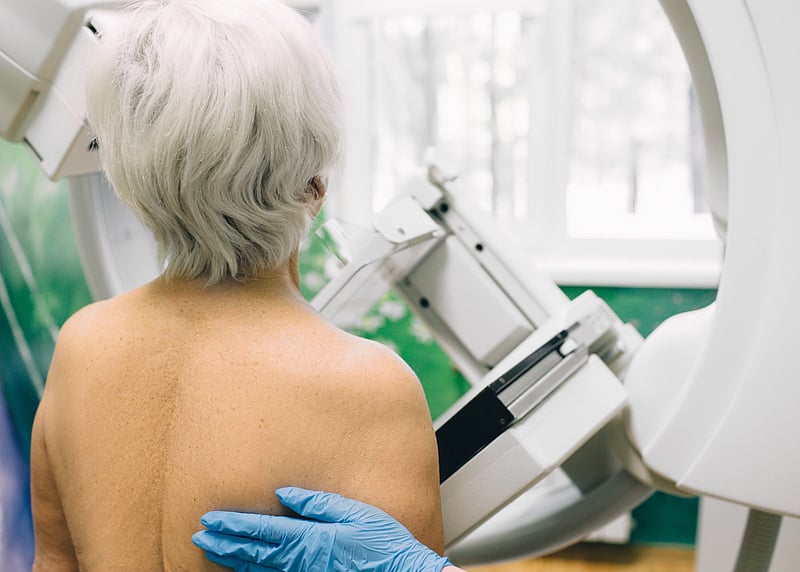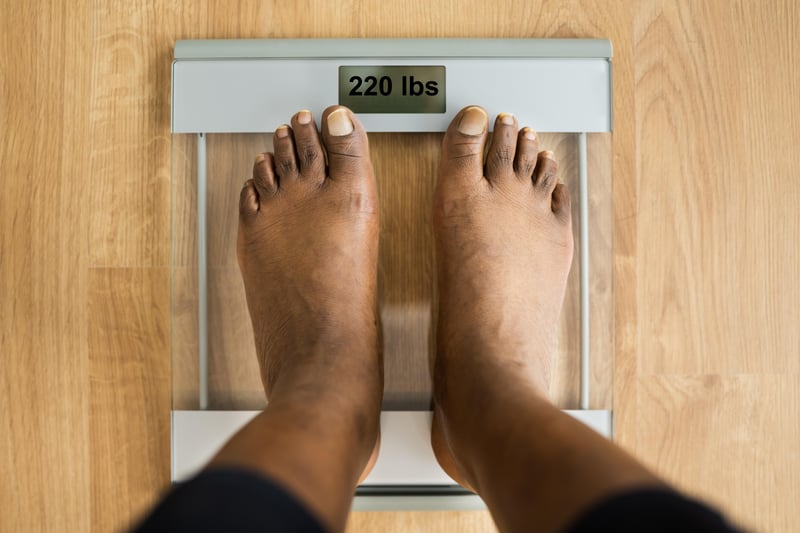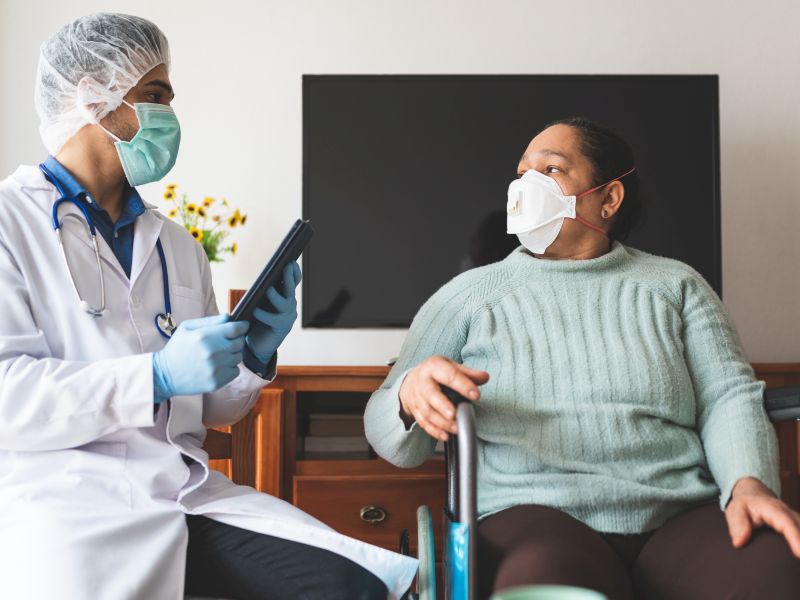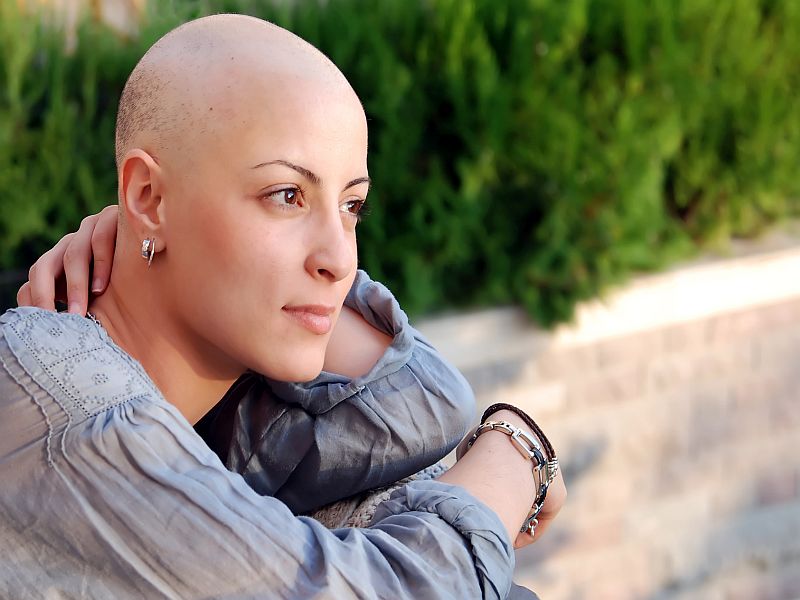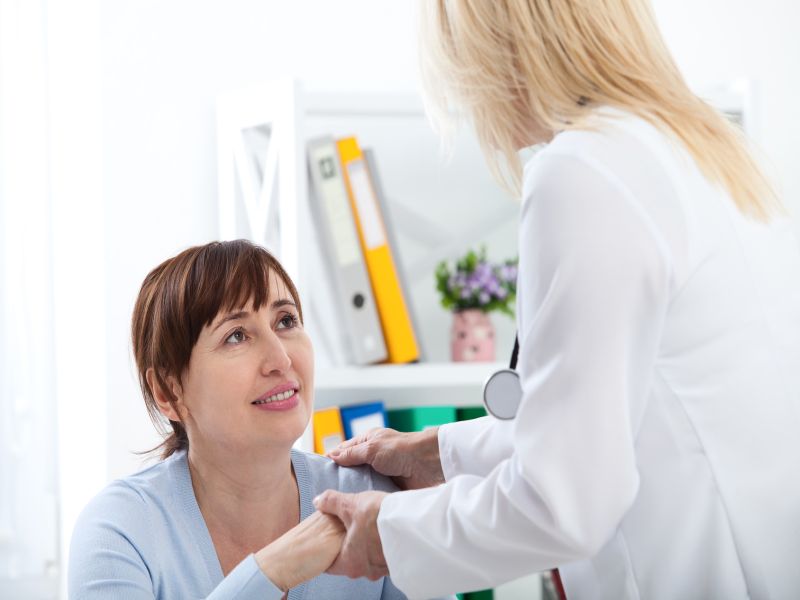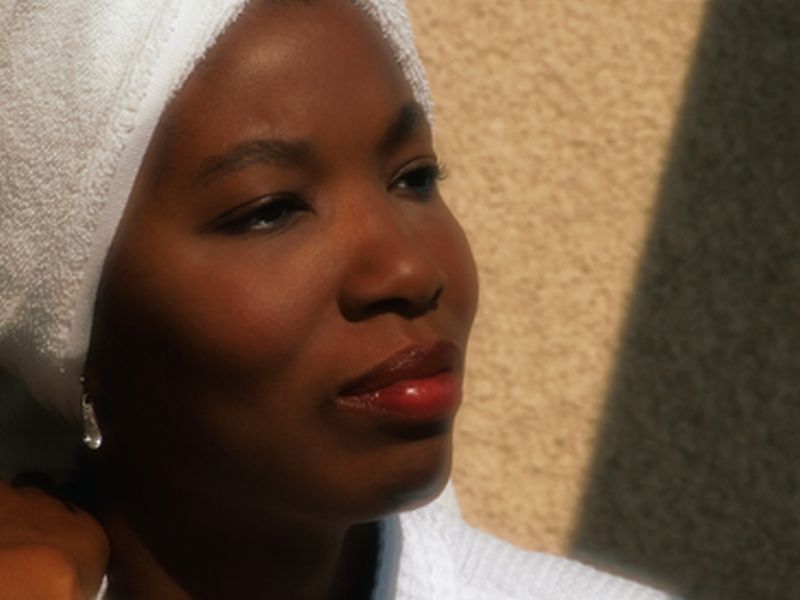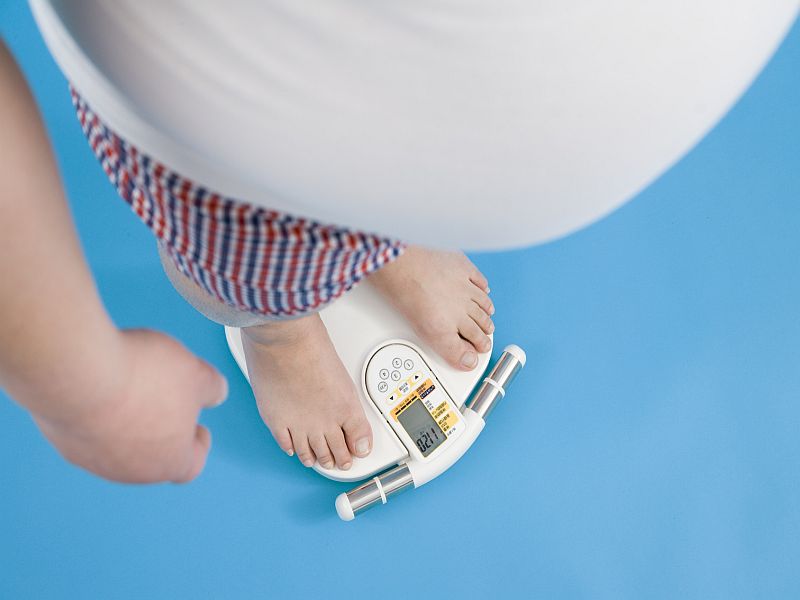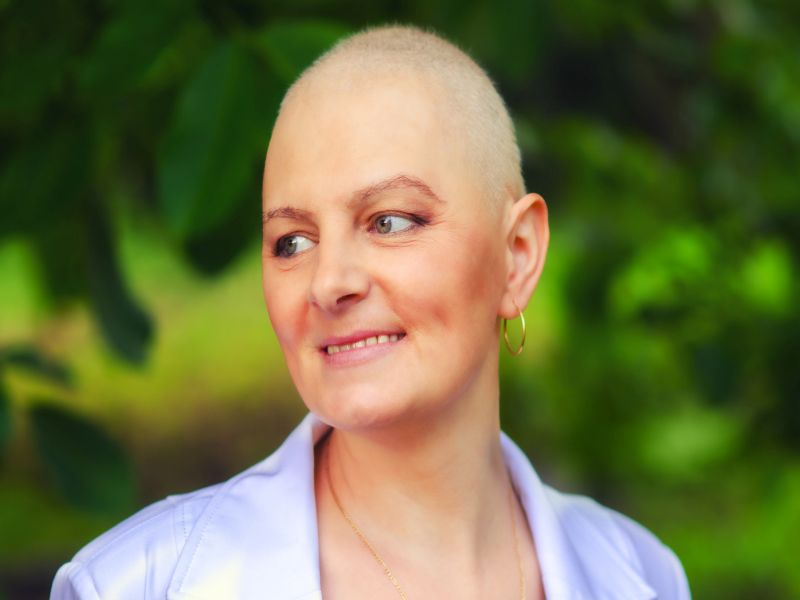Get Healthy!
29 Results for search "Cancer: Uterine".
Health News Results - 29
An already approved cancer drug could be an effective treatment for women with advanced, recurring uterine cancer, a new clinical trial shows.
Rucaparib, which belongs to a class of drugs called PARP inhibitors, extended women's survival for more than a year and a half, on average, compared to simple surveillance following chemotherapy, re...
- Dennis Thompson HealthDay Reporter
- |
- March 22, 2024
- |
- Full Page
Older Black women who use chemical hair relaxers may be more likely to develop uterine cancer, new research suggests.
Specifically, postmenopausal Black women who reported using hair relaxers more than twice a year or for more than five years had more than a 50% increased risk of being diagnosed with uterine cancer compared to women who rarely or never used relaxers.
“Black women ...
- Denise Mann HealthDay Reporter
- |
- October 13, 2023
- |
- Full Page
Harmful "forever" chemicals are widespread in the environment, and new research hints they pose a particular health risk to women.
A new study suggests women who are exposed to higher levels of per- and polyfluorinated alkyl substances, or PFAS, are more likely to have been diagnosed with certain cancers. Exposure is also linked to liver damage, fertility issues, high blood pressure and o...
- Denise Mann HealthDay Reporter
- |
- September 19, 2023
- |
- Full Page
Cancer death rates among Hispanic Americans have declined in general over the past two decades, but for certain cancers the outlook has only gotten worse, a new study finds.
First, the good news: Thanks to improvements in screening, diagnosis and treatment -- and a decline in smoking -- the U.S. cancer death rate has been dropping for years. And the new study found that this is true of Hi...
- Amy Norton HealthDay Reporter
- |
- July 3, 2023
- |
- Full Page
Researchers have discovered that two drugs might be better than one for women who have advanced endometrial cancer.
Combining chemotherapy and immunotherapy or a monoclonal antibody at the same time helped these patients live longer without their cancer progressing, especially those who had a specific type of endometrial cancer known as a mismatch repair-deficient tumor.
"We found a...
- Cara Murez HealthDay Reporter
- |
- March 28, 2023
- |
- Full Page
Black women are not getting the tests they need to diagnose uterine cancer early, according to a new study.
Previous research had found that Black patients are less likely to receive early diagnoses than people from other racial and ethnic groups. The new study showed that it's because Black women were more likely to face testing delays or to not get recommended tests at all.
That m...
- Cara Murez HealthDay Reporter
- |
- February 21, 2023
- |
- Full Page
For women experiencing menopause symptoms with no sign of relief in sight, it doesn't have to be this way.
An expert in women's health offers some suggestions for helping control symptoms during this time of life when menstrual cycles end.
"We sometimes hear the question, 'Do I need to treat hot flashes or night sweats?' and the answer for many may be, 'yes.' Because hot flashes and...
- Cara Murez HealthDay Reporter
- |
- January 24, 2023
- |
- Full Page
The latest statistics from the U.S. National Cancer Institute (NCI) show a continuing decline in the number of Americans who die from cancer, although there's been little change in the number of new cancer cases.
"From 2015 to 2019, overall cancer death rates decreased by 2.1% per year in men and women combined," according to a statement issued by the NCI on Thursday.
The biggest d...
- Ernie Mundell HealthDay Reporter
- |
- October 27, 2022
- |
- Full Page
A Missouri woman has sued L'Oréal and several other beauty product companies, alleging that their hair-straightening products caused her uterine cancer.
- Cara Murez HealthDay Reporter
- |
- October 25, 2022
- |
- Full Page
Women who regularly use chemical hair straighteners may be more prone to developing uterine cancer, a new large government study suggests.
The study, which followed nearly 34,000 U.S. women over a decade, found that those who frequently used hair straighteners were 2.5 times more likely to de...
- Amy Norton HealthDay Reporter
- |
- October 20, 2022
- |
- Full Page
The U.S. Supreme Court's decision to overturn Roe v. Wade will limit cancer treatment options for pregnant women and put lives needlessly at risk, America's leading cancer societies warn.
About one in every 1,000 women who are pregnant will wind up being diagnosed wi...
- Dennis Thompson HealthDay Reporter
- |
- July 12, 2022
- |
- Full Page
Uterine cancer deaths have been increasing in the United States, particularly among Black women. Now, research appears to pinpoint a cause.
A rare but aggressive type of cancer known as Type 2 endometrial cancer is more difficult to treat and was responsible for 20% of cases and 45% of deaths identified in the study.
Deaths from this type of cancer increased by 2.7% per year during...
- By Cara Murez HealthDay Reporter
- |
- May 6, 2022
- |
- Full Page
Obesity is tied to many types of cancer, and new research finds that over the long term it nearly doubles a woman's risk of endometrial cancer.
"This study is an interesting first step into how genetic analyses could be used to uncover exactly how obesity causes cancer, and what can be done to tackle it," said study lead author Emma Hazelwood, of the University of Bristol in England.
<...- By Robert Preidt HealthDay Reporter
- |
- April 21, 2022
- |
- Full Page
President Joe Biden announced Wednesday that he is giving a new push to the cancer moonshot initiative that he first led during the Obama administration.
In his announcement, Biden said the program would aim to boost prevention, screening and research with a target of reducing the cancer death rate by 50% over the ne...
- Robert Preidt and Robin Foster
- |
- February 3, 2022
- |
- Full Page
A drug used to treat several types of cancer is also an effective treatment for aggressive forms of endometrial cancer, the second most common cancer in women worldwide, a new clinical trial shows. The endometrium is the inner lining of the uterus.
"These findings suggest a long-term benefit to patients," said lead researcher Dr. David O'Malley, a gynecologic oncologist at the Ohio State ...
- Cara Murez
- |
- January 13, 2022
- |
- Full Page
Patients who undergo surgery for certain types of cancer may have better short-term survival if they receive a particular anti-nausea drug, a preliminary study suggests.
Among more than 74,000 patients who had cancer surgery, researchers found that those who received the drug -- called dexamethasone -- were less likely to die in the next 90 days.
The vast majority of all patients su...
- Amy Norton HealthDay Reporter
- |
- October 12, 2021
- |
- Full Page
A noninvasive method of screening for endometrial cancer often fails to detect signs of it in Black women, a new study says.
The findings raise questions about the use of transvaginal ultrasound (TVUS) to determine the need for a biopsy in these patients, according to the authors.
"Black women have an over 90% higher [death] rate after diagnosis of endometrial cancer when compared w...
- Robert Preidt
- |
- July 20, 2021
- |
- Full Page
Being obese or overweight can increase the odds of developing several types of cancers, new research from the United Kingdom reveals.
But shedding the excess pounds can lower the risk, researchers say.
Reducing obesity cuts the risk for endometrial cancer by 44% and uterine cancer by 39%, and could also prevent 18% of kidney cancers and 17% of stomach and liver cancers, according t...
- Steven Reinberg HealthDay Reporter
- |
- May 10, 2021
- |
- Full Page
Women face no increased risk of pelvic cancer -- tumors of the bladder, cervix and ovaries -- if they have surgery to treat stress urinary incontinence (SUI), a new study finds.
Concerns about possible complications and safety issues related to use of surgical mesh -- particularly for a condition called pelvic organ prolapse, and also for SUI -- have made some patients reluctant to have m...
- Robert Preidt
- |
- April 12, 2021
- |
- Full Page
Obesity may shorten the lives of patients with certain types of cancers, but not others, a new research review concludes.
The analysis, of more than 200 studies, found that across numerous cancers, obesity was linked to shorter survival. The list included breast, colon, prostate, uterine and pancreatic cancers.
On the other hand, patients with lung, kidney or melanoma skin cancer al...
- Amy Norton HealthDay Reporter
- |
- March 30, 2021
- |
- Full Page
For some patients who have early endometrial cancer or a precancerous condition, a hysterectomy may not be a good option because of serious health issues or the desire to preserve fertility.
Now, a new Australian study has found that a hormonal IUD might be an effective treatment option for these women.
About 82% of women who had a precancerous condition and used the levonorgestrel...
- Cara Murez HealthDay Reporter
- |
- March 26, 2021
- |
- Full Page
The same lifestyle habits that protect the heart can also curb the risk of a range of cancers, a large new study confirms.
The study of more than 20,000 U.S. adults found both bad news and good news.
People with risk factors for heart disease also faced increased odds of developing cancer over the next 15 years. On the other hand, people who followed a heart-healthy lifestyle c...
- Ernie Mundell HealthDay Reporter
- |
- March 16, 2021
- |
- Full Page
Despite rampant fears that cancer patients are at higher risk of having severe cases of COVID-19, a new study suggests gynecologic cancers do not boost the chances of hospitalization or death.
"Our study should be reassuring for women with gynecologic cancers who are worried that having cancer increases their risk of becoming seriously ill if they go to the hospital because of COVID-1...
- |
- July 30, 2020
- |
- Full Page
High levels of the sex hormone testosterone may trigger different health problems in men and women, a new study reveals.
In women, testosterone may increase the risk for type 2 diabetes, while in men it lowers that risk. But high levels of testosterone increase the risk for breast and endometrial cancer in women and prostate cancer in men, the researchers reported.
"Our fi...
- Steven Reinberg
- |
- February 10, 2020
- |
- Full Page
Teen and young adult cancer survivors are nearly twice as likely to be hospitalized as those who haven't had cancer, a new study finds.
"Few studies have investigated health risk in adolescents and young adults after cancer treatment," said study author Chelsea Anderson, a postdoctoral fellow at the American Cancer Society.
She and her colleagues from the University of Utah ...
- Robert Preidt
- |
- February 5, 2020
- |
- Full Page
Women who must have their uterus removed should be wary of a procedure called uncontained uterine power morcellation, Yale University researchers warn.
This once common surgical option for hysterectomy or myomectomy (removal of uterine fibroids) has been linked to worse outcomes for patients with undiagnosed uterine cancer at the time of surgery.
In a hysterectomy, the proce...
- Steven Reinberg
- |
- September 19, 2019
- |
- Full Page
There's been a steep uptick in aggressive uterine cancers among American women, especially black women, since 2000, a new study shows.
It also found that black women with these aggressive cancers have lower survival rates than other women.
Researchers at the U.S. National Cancer Institute (NCI) analyzed data on uterine cancer among 30- to 79-year-olds. They found that cases ...
- Robert Preidt
- |
- May 28, 2019
- |
- Full Page
As more young American adults struggle with extra weight, they are paying an even steeper price as the rates of obesity-related cancers rise in this age group.
Obesity has already been linked to rising rates of type 2 diabetes, heart disease and knee replacements. Now, new research suggests cancer can be added to that list, and the rate of obesity-related cancers is certain to keep cl...
- Steven Reinberg
- |
- February 4, 2019
- |
- Full Page
Over the past 25 years, the number of Americans who have died from cancer has dropped dramatically, though racial and economic disparities persist, a new study reveals.
Between 1991 and 2016, deaths from cancer dropped 27 percent. In real numbers, that's almost 2.6 million fewer cancer deaths, according to the American Cancer Society.
"The decline in deaths is largely driven...
- Steven Reinberg
- |
- January 8, 2019
- |
- Full Page


